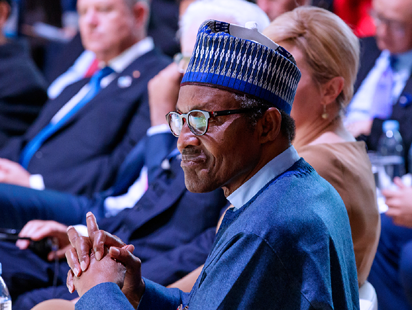MPs have also questioned the ability of the Education and Skills Funding Agency (ESFA) to control academies’ executive pay awards following a series of high-profile scandals.
The report said the DfE should ensure that academy trusts were sufficiently transparent and accountable to parents and communities.
Its conclusions follow increasing concern over the academies programme, which began in 2000 under Labour but has been widened by the Conservatives.
Meg Hillier, the chair of the committee, said the education of many pupils had been badly affected.
“We have seen the troubling consequences of poor governance and oversight of academy trusts,” she said.
“Parents and the wider community are entitled to proper access to transparent information about their local academy schools.”
UNILAG TV begins operations tomorrow
Babalakin spoke on Tuesday at a briefing on UNILAG TV at the university’s Senate building, where January 17 was announced as the day the station would begin operation on StarTimes’ Channel 184.
He said, “I hope this station will be the centre of very interesting discussions. I am hoping that it will be a centre of correct and accurate news and will begin the end of fake news in Nigeria.
“We are hoping that it will bring back the vibrancy of intellectual discourse and become a great centre. I really look forward to you providing what is missing today.
“A lot of TV stations have done very well, but I believe there is room for a TV station that will acquire the reputation of being a source of the most outstanding intellectual discourse. I want UNILAG TV to always bring together the leaders of opinion, the most resourceful people and the most intellectual people in every area to discuss issues.”
Education gets N620.5bn against UNESCO’s advice
The executive summary of the proposals, according to The Punch check on Thursday in Abuja, showed that the education sector got N620.5bn (about 7.05 per cent), marginal raise over the total of N605.8bn budgeted for the sector in 2018.
Over some years, the country’s funding for education continued to rotate between five per cent, six per cent and seven per cent of the national budget.
Experts’ Expectations in 2019
Year 2018 has gone with its attendant problems top among them is the strike by the Academic Staff Union of Universities (ASUU) and its polytechnic counterpart (ASUP). The unions and the federal government are still at loggerheads over sundry issues.
60m illiterates exist in Nigeria- Minister of Education
Malam Adamu Adamu, Minister of Education on Wednesday in Kano said that Nigeria has about 60 million illiterate youths and adults.
Education Minister Adamu Adamu, who was represented by Mr Prinzo James, Deputy Director, Basic and Secondary Education, Ministry of Education, said this at the 2018 International Literacy Day Celebration. He said out of this figure, females accounted for nearly 60 percent of the population, while a total of 11 million children were out of school. According to him, the increasing low level of literacy skills achieved by the millions of learners who completed some formal school education, made the situation more complicated. Adamu said the present state of affairs called for urgent attention as the country strives to ensure the attainment of SDGs by 2030.
Education experts call for a ‘take your son into university day’
The proposal is based on “take your daughter to work day”, which began in 1993 as a way of exposing girls to as wide a range of careers as possible, and aims to address the growing gender gap at British universities where female students outnumber male. Girls are already outperforming boys at the end of primary school when they take their key stage 2 Sats, with 68% of girls reaching the expected standard compared to 60% of boys. This summer 17.1% of boys in England attained top marks, an A or 7 and above, in their GSCEs compared with 23.4% of girls. That gap persists at A-level.
Investment in Education Best Gift from Government to Citizens – Mrs. Laure Beaufils
In her congratulatory message to the school, Mrs. Beaufils said 60 years of consistency in excellence and capacity building was a remarkable feat for any Institution.
She said, “I started my career as a civil servant, specifically as an education adviser; so to an extent, I know a thing or two about education. Investing in education is the best investment any government or anyone can make and invest in girls’ education is the most effective investment that can be made.
“This is why I will implore you to always think of those without access to education,” Beaufils said.
The British envoy charged the government to also focus on other developmental goals since it was not certain that there would be jobs for graduating students.
She added that education was not just about knowledge but creativity; confidence and not being afraid to voice out one’s belief.
ASUU Strike: We are doing everything possible to call it off
Anwuka who was cornered by Vanguard yesterday (Thursday) during Lafarge Literacy National competition in Lagos said:”We are doing everything possible to ensure that ASUU calls off their strike.” Prof. Anthony Gozie Anwuka Asked when ASUU may likely return to the classrooms, he said: “I don’t know, but we are discussing with them.”
Job alert
We are hiring.
Buhari has promised to increase the yearly allocation to education sector
He said the current allocation to the sector was too small to propel the desired growth of the economy and pointed out that the United Nations target of 26 per cent was ideal. He assured Nigerians that allocations to the sector would be improved as revenue increases and described education as a major engine for the development of any country.







 President Muhammadu Buhari has promised to increase the yearly allocation to education sector as the current five per cent to the sector was inadequate.
President Muhammadu Buhari has promised to increase the yearly allocation to education sector as the current five per cent to the sector was inadequate.